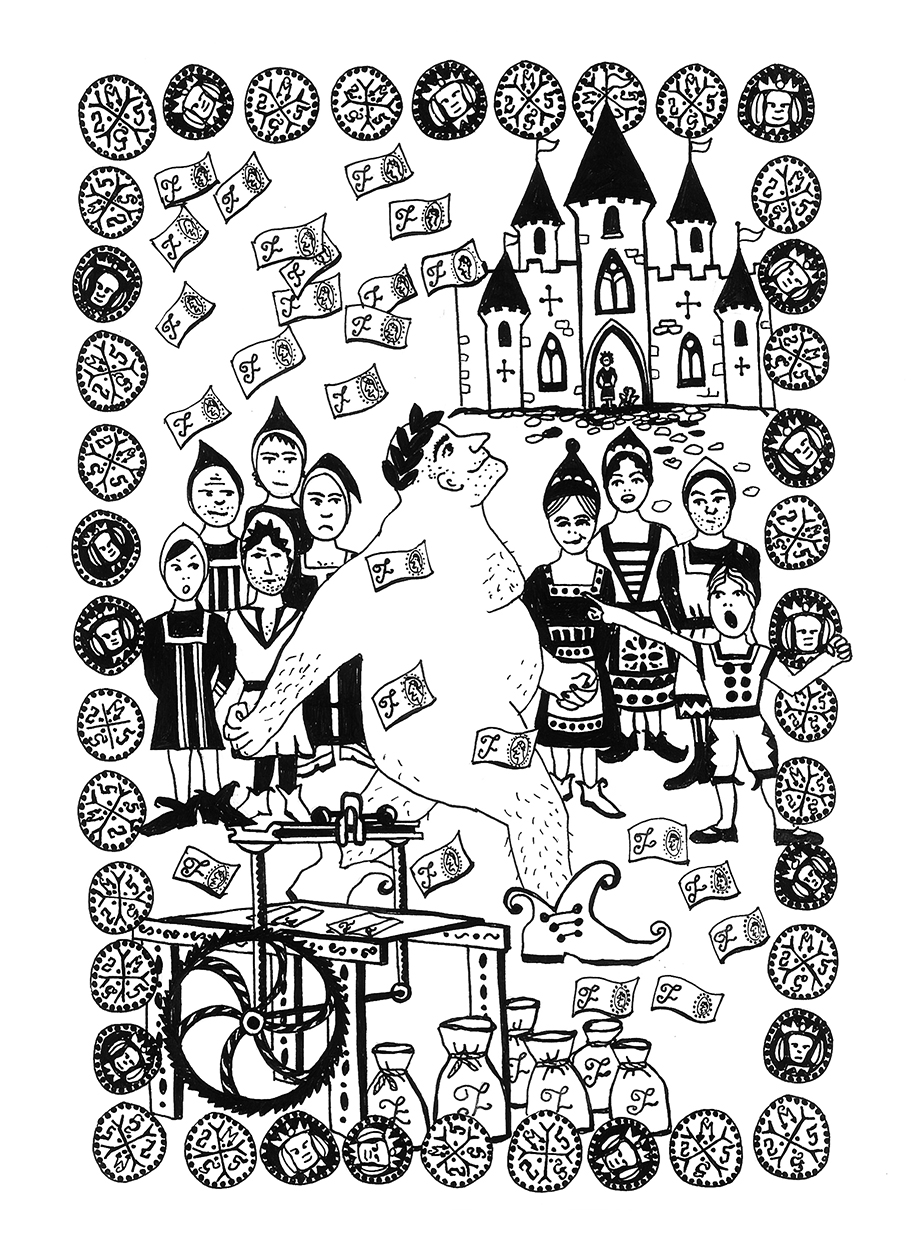To celebrate the launch of our new book, Happy Ever After: Financial Freedom Isn’t A Fairytale, we are posting excerpts from the book, specifically the fairytale segments of our favourite spoiled little princess being taught about money, savings, and investing by her talking pet frog, Charlie Croaker.
The Emperor’s New Money
“Did your father ever tell you about the country on the other side of the magic mountains, where the emperor was really vain and greedy?” Charlie asked the princess.
“Oh, is he the one that walked around his city naked because some tricksters convinced him that he was wearing the most amazing clothes ever?” the princess checked.
“Yes, that one,” Charlie croaked. “Thanks for ruining my story.”
“Oh sorry, it’s a good one. Daddy laughed and laughed and laughed when he heard about it!”
“Well the Emperor learned his lesson, and used the same trick that was played on him, except no one noticed,” Charlie explained.
He got naked again?” the princess asked.
Charlie then explained how the emperor across the mountains had run back to his palace covered only in embarrassment after his infamous naked walk, and refused to come out for a very long time. While he was hiding he thought over and over about that day, and one thing seemed stranger than any of the others: not just that he had been taken in by the tricksters, but that everyone else had been fooled by them too.
Everyone could see he was naked, but no one had said anything until the little girl shouted out.
“Why was that?” the princess asked.
“Because no one ever really knows what everyone else is thinking,” Charlie answered. “So even if one person thinks something is odd, if they see everyone else going along with it, that person normally follows along too. They won’t say anything in case it will make them look stupid, instead of the naked guy!”
“That’s just silly,” said the princess.
“It is,” Charlie agreed. “The emperor thought it was silly too, so he decided to test his theory to see see if he could get people to do it again, and this time play a huge trick on all the people who had laughed at him on that day.”
“What did he do?” the princess asked, thinking it would have to be a really good, really funny prank if it was going to make up for walking around town naked.
“He bought a printing press and printed thousands of little notes with his picture on,” Charlie explained.
“What?” asked the princess. “Who would want lots of pictures of the emperor? Did he keep his clothes on in the pictures at least?”
“I don’t know,” Charlie thought,“It just showed his face, but anyway he told everyone in the empire that they must now start using these pictures of him on paper as money…”
“Instead of magic gold coins?” interrupted the princess.
“Yes, instead of magic gold coins, and he told the people they had to pay their taxes with these pieces of paper.”
“Did the people all laugh at him for being stupid again?” the princess asked.
“No they didn’t. No one laughs about tax,” Charlie explained. “People started to pay for the notes with their livestock and produce, and some of them with gold coins they had saved, until the emperor had collected nearly all the magic gold coins in his empire, and everyone was using his worthless pieces of paper instead.”
“That’s crazy. Did a little girl shout out that they were only paper?”
“Maybe, but no one listened. Life went on just as before, only now the emperor was richer and everyone else was poorer.”
“Why were they poorer?” asked the princess.
“Well,” said Charlie. “All they had collected was pieces of paper and not magic gold, so the emperor could print a new batch whenever he wanted, making it worth less, and everyone would have to believe him. Second, everyone felt that the paper wasn’t as valuable as something real, so although they worked just as hard to get it, they didn’t think as carefully before they spent it. All they had were silly little pictures of the emperor in their pockets, so it didn’t matter if they spent them on other silly things. No one ever wanted to save them, and so they all became poorer.”
“That’s terrible,” said the princess. “Those poor people. Is there anything we can do?”
“No. No one will believe you if you shout that out in the crowd now,” Charlie told her. “All you can do is make sure it doesn’t happen to you, and slowly tell everyone you know about it, make sure they understand what money really is and how important it is to be free.”
“Ok, what do I need to do…?”
In the illustration on the cover of Happy Ever After, we show our princess at the start of some forests. She doesn’t know what she’s about to walk into, and she definitely doesn’t know how to get out of the woods once she steps in.
Like the rest of us.
The goal of Happy Ever After is to show a way out of the woods, to shorten the path so we aren’t lost and looking for help our whole lives. I wrote it for my daughter, the inspiration for the princess in the stories, to understand how she can make her own way in the world, and never feel lost. I hope you can use it to do the same for your little princesses and princes too.



